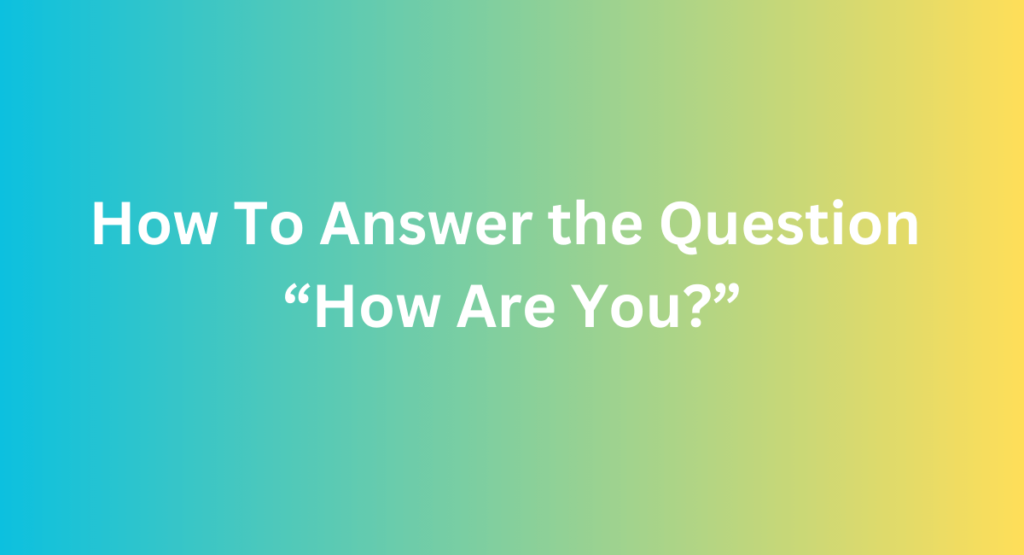Respond promptly and politely to a meeting request, confirming your availability or proposing alternative timings. Express your willingness to participate and clarify the meeting’s purpose if necessary.
Navigating the nuances of professional communication is crucial in today’s fast-paced business environment. A request for a meeting is a common occurrence and responding appropriately sets the tone for a productive collaboration. Whether you’re an entrepreneur, a freelancer, or a corporate employee, your ability to reply effectively to meeting requests can significantly impact your professional relationships and time management.
Crafting a clear and considerate response not only demonstrates your professionalism but also shows respect for the other party’s time and agenda. Remember, the goal is to facilitate a smooth and successful meeting arrangement that benefits all involved parties.
Importance Of Responding
The importance of responding to meeting requests cannot be overstated. It shows professionalism and respect.
Why Responding Is Important
- Builds trust: Prompt replies foster reliability.
- Encourages communication: It keeps the conversation going.
- Shows interest: A quick response indicates that you value the interaction.
Consequences Of Not Responding
Ignoring a meeting request can lead to negative outcomes.
| Consequence | Impact |
|---|---|
| Missed Opportunities | Lost chances to connect or collaborate. |
| Damaged Reputation | People may view you as unreliable. |
| Reduced Productivity | Delays can slow down project progress. |
Methods Of Responding
When someone asks for a meeting, your response sets the tone for the upcoming interaction. Whether it’s via email, phone, or face-to-face, it’s crucial to reply promptly and professionally. Let’s dive into the methods of responding across different communication channels.
Email Response
Email is a widely used form for scheduling meetings. To craft an effective response:
- Address the request directly and politely.
- Specify your availability or propose alternative timings.
- Use a professional tone and language.
- Confirm the meeting agenda, if provided.
Below is a sample response:
Subject: Meeting Request - Availability
Dear [Name],
Thank you for reaching out. I am available to meet on [Date and Time]. Does that work for you?
Looking forward to discussing [Meeting Topic].
Best regards,
[Your Name]
Phone Response
Responding to a meeting request over the phone requires a slightly different approach:
- Answer the call with a cheerful greeting.
- Listen carefully to the proposed meeting details.
- Confirm your availability immediately or offer to call back once you check your schedule.
- Summarize the meeting details before ending the call.
In-person Response
When asked for a meeting in person, you can:
| Action | Description |
|---|---|
|
|
|
|
|
|
Tips For Responding
When someone asks for a meeting, your reply sets the tone for future interactions. A well-crafted response can build rapport and show respect for the other person’s time. Below are essential tips to ensure your reply is prompt, clear, and professional.
Promptness
Promptness
Time is precious. Respond quickly to meeting requests. A swift reply shows you value the other person’s schedule.
- Check emails regularly to avoid delays.
- Use calendar alerts to remind you to respond.
Clarity
Clarity
Be clear about your availability. A straightforward response prevents misunderstandings.
- State-specific days and times you are free.
- Confirm the meeting’s purpose to prepare accordingly.
Professionalism
Professionalism
Maintain a professional tone. This conveys your serious approach to the meeting.
Use polite language and proper greetings. Keep the tone formal or semi-formal, based on your relationship with the requester.
| Do | Don’t |
|---|---|
|
|
|
|
Best Practices For Responding
When it comes to professional communication, responding to a meeting request requires both promptness and courtesy. Mastering the art of replying not only reflects your professionalism but also sets the stage for a productive encounter. Follow these best practices to ensure your response is both effective and considerate.
Acknowledge The Request
Quickly recognizing the meeting invitation shows respect for the sender’s time. A brief, polite acknowledgment can go a long way. Here’s an example:
Thank you for reaching out. Let’s discuss the details.
Suggest A Time And Place
Proposing a specific time and location demonstrates initiative and helps move the planning forward. Consider your schedule and suggest a convenient option for both parties. Use this format:
How about we meet at [Place] on [Date] at [Time]?
Confirm The Details
Once you agree on the specifics, confirming the meeting details is crucial. This eliminates any confusion and ensures both parties are on the same page. Send a confirmation like:
Great, it’s a date! See you at [Place], [Date] at [Time].
Remember to keep the conversation clear and straight to the point. Use these tips to enhance your communication and make meeting planning effortless.
What To Avoid In Your Response
When someone asks you for a meeting, your response is key. It sets the tone for your professional relationship and can influence their impression of you. Below are critical mistakes to avoid when crafting your reply.
Unprofessional Language
Keep it professional. Jokes or slang can seem out of place in a business context. Always use a formal tone. This shows respect to the person asking for the meeting. Avoid emojis, casual abbreviations, and overly familiar phrases.
Overcommitting
Say no to overcommitting. Promise only what you can deliver. Saying ‘yes’ to every meeting can lead to a cluttered schedule. Be honest about your availability. It’s better to propose a later date than to cancel later.
Ignoring The Request
Do not ignore meeting requests. Respond promptly, even if you cannot attend. Ignoring can seem rude and unprofessional. Acknowledge every request. Offer alternative times if the proposed slot doesn’t work for you.
Sample Responses
Crafting the perfect reply to a meeting request requires a balance of politeness and clarity. Ensure your response is concise, stating your availability or proposing alternative timings if necessary. Always confirm your attendance or suggest a follow-up if you’re unable to make it.
In the professional world, responding to a meeting request requires a blend of promptness and clarity. Whether the request comes via email, phone, or in person, crafting a courteous and concise response is key. Here are practical samples to guide you through common scenarios.
Simple Email Response
Dear [Name],
Thank you for reaching out. I am available to meet regarding [Topic/Reason for the meeting]. Please let me know a time that suits you.
Best regards,
[Your Name]
Phone Response With Suggested Time
Hello [Name],
Thank you for considering me for a meeting. Is [Date and Time] convenient for you? If not, I’m flexible and can adjust to a better time.
Looking forward to our conversation.
[Your Name]
In-person Response With Agenda
Hi [Name],
It’s great to connect. I’m keen on discussing [Meeting Topic]. Can we set a time to meet? I would also like to prepare an agenda to ensure we cover all important points.
How does your schedule look next week?
Thanks,
[Your Name]
Each response offers a polite acknowledgment and expresses readiness to engage in a discussion. The key is to be prompt, respectful, and to the point, ensuring a smooth scheduling process.
Frequently Asked Questions
How Do I Respond To A Request For A Meeting?
To respond to a meeting request, promptly confirm your availability or propose alternative times. Express your appreciation for the invitation and briefly mention any topics you’d like to discuss. Ensure your response is polite and professional.
What Do You Say When Someone Asks For A Meeting?
When someone asks for a meeting, respond politely with, “Thank you for reaching out! Could you please share your availability and the meeting’s agenda? ” This shows openness and helps you prepare effectively.
How To Reply No When Someone Asks For A Meeting?
Thank you for the offer, but I’m unable to attend a meeting at this time. Can we explore alternative options or reschedule for a later date?
How To Respond When A Guy Asks To Meet Up?
Consider your comfort and interest level before responding. If you’re keen to meet, suggest a public place and time. If unsure or uninterested, politely decline and offer an alternative interaction, like a phone call. Always prioritize your safety and feelings in your response.
Conclusion
Navigating meeting requests requires tact and clarity. Your response sets the stage for future interactions. Remember, clear communication and respect for time are key. Adopt these strategies to ensure your replies are both professional and considerate. Master the art of responding, and watch your professional relationships flourish.
If you are unable to meet at the requested time, provide a clear explanation. By following these guidelines, you can effectively respond to meeting requests and maintain positive professional relationships.



